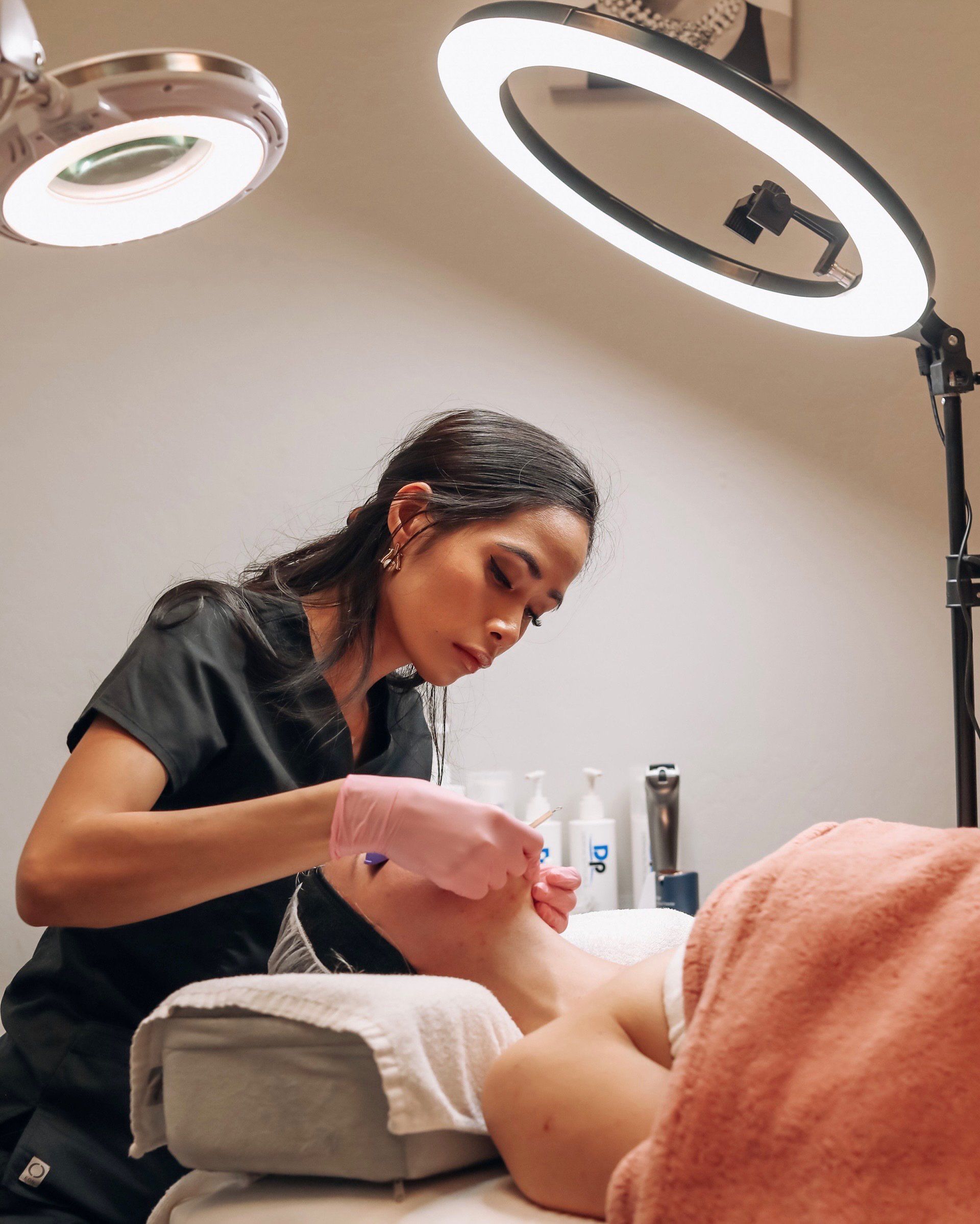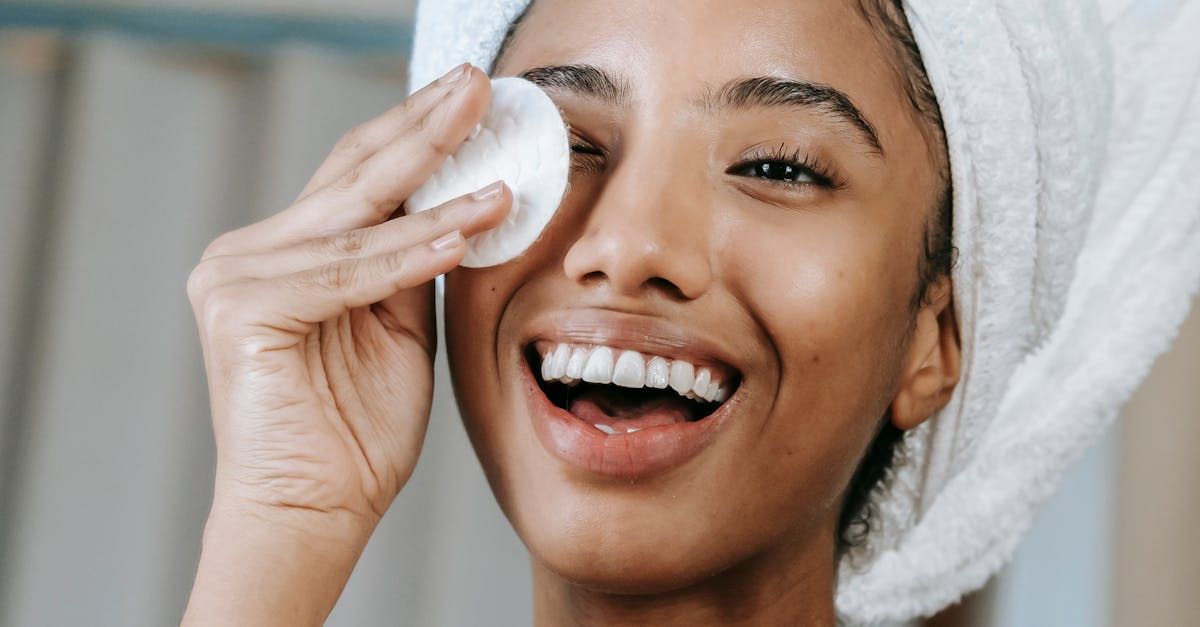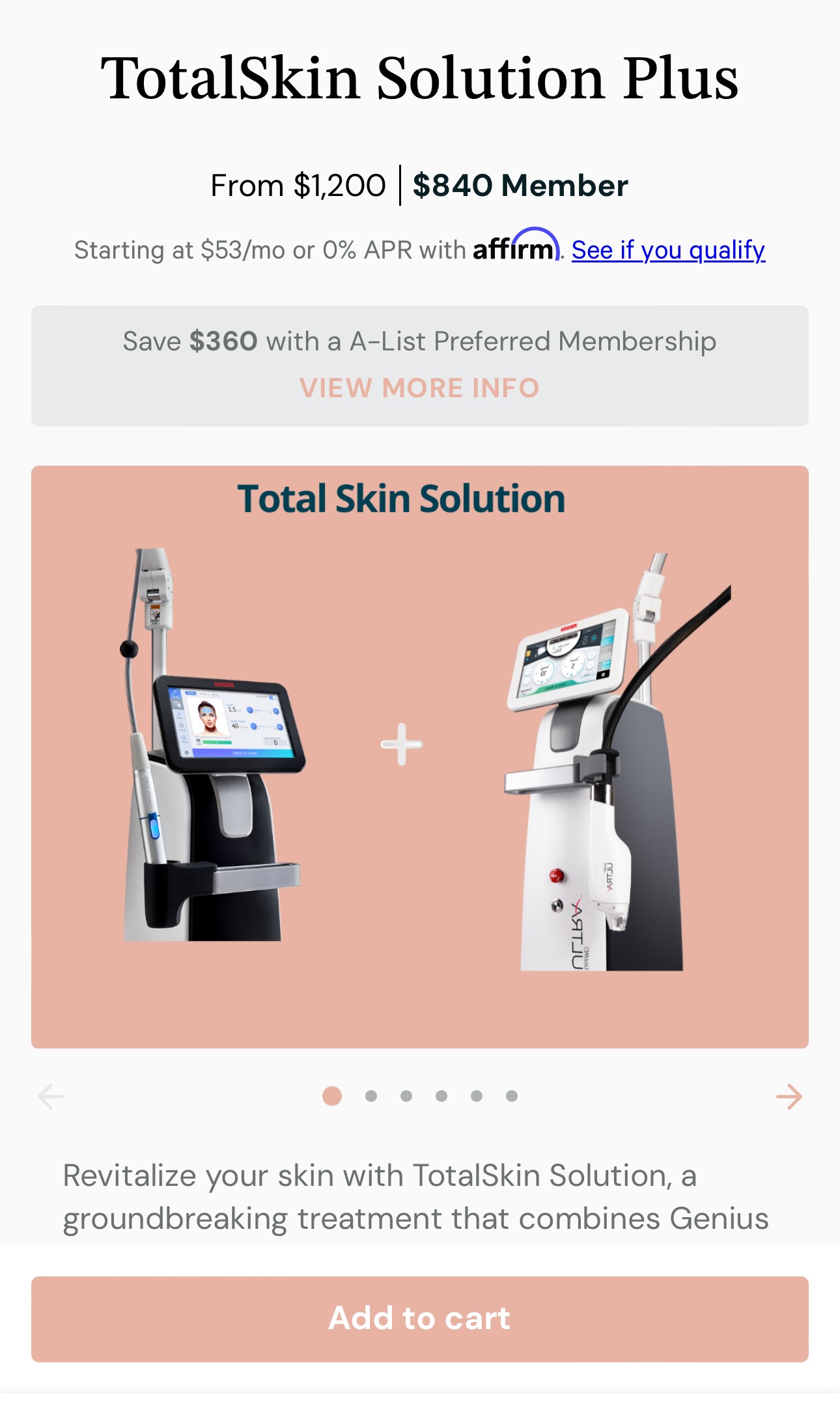Acne Fighting Vitamins And Minerals
Topical treatments like lotions and cleansers are only one of the equations for clearing up acne. Your diet is crucial in maintaining healthy skin and warding off pesky breakouts such as hormonal acne. The battle against acne can be significantly aided by including specific vitamins and minerals in your diet. If you want clear, healthy skin, try these dietary supplements:
Magnesium
Magnesium helps the body function, including skin health. It helps regulate hormone levels and reduce inflammation, two key factors in acne development. Acne can be fought off more easily by eating magnesium-rich foods like spinach, almonds, and avocados.
Zinc
Zinc is another remarkable nutrient that plays a significant role in acne management. Those with acne can greatly benefit from this mineral because it controls oil production, kills germs, and promotes wound healing. Oysters, pumpkin seeds, and lean meats are great food choices for getting the zinc your skin needs.
Vitamin D
The "sunshine vitamin," vitamin D, has been linked to many advantages, including acne control and improved skin health. Adequate vitamin D levels can help reduce inflammation and promote healthy skin cell turnover. Fortified foods, such as milk, fish, and cereals, provide a convenient alternative to your daily dose of sunshine for vitamin D.
Vitamin A
Topical acne treatments often include vitamin A due to their well-known skin health-improvement qualities. It helps regulate oil production, prevent clogged pores, and promote skin cell turnover. Maintaining radiant and healthy skin with the support of vitamin A-rich foods like carrots, sweet potatoes, and greens is possible.
Vitamin C
Vitamin C's antioxidant properties aid collagen synthesis and wound healing. By supporting collagen production, it helps maintain the integrity of the skin and may help fade acne scars. Vitamin C is essential for skin health, and citrus fruits, bell peppers, and strawberries are great food choices.
Vitamin B
The B-vitamin complex, which contains vitamins B3, B5, and B6, is essential for a healthy complexion. These vitamins for acne help regulate oil production, support skin cell metabolism, and has anti inflammatory properties. You can get your skin's B vitamins from meals, including whole grains, lentils, eggs, and chicken.
Vitamin E
Vitamin E has long been known for its antioxidant effects but can also help combat acne. By neutralizing harmful free radicals and reducing inflammation, vitamin E helps to calm irritated skin and prevent the formation of new blemishes. Almonds, spinach, avocado, and sunflower seeds are all good nutritional sources of the vitamin that helps prevent acne.
Fish oil
Omega-3 fatty acid-rich fish oil has many health benefits. These healthy fats offer anti-inflammatory effects, making them useful acne-fighting agents. Fish oil reduces skin inflammation, lowering acne redness and swelling for a smoother, brighter complexion. Try eating fatty fish like salmon, mackerel, or sardines once every few days to increase your intake of fish oil.
Probiotics
A common name for probiotics is "friendly bacteria." The research showing its positive impacts on gut health has led to its recent surge in popularity. However, their positive impact extends beyond the digestive system. Probiotics increase skin barrier function and reduce inflammation, which may help acne patients. You can find probiotics in fermented foods like yogurt, kefir, sauerkraut, and kimchi, or opt for a high-quality probiotic supplement.
Omega-3 fatty acids
These essential fats are found in fish oil and other sources like flaxseeds, chia seeds, and walnuts. Omega-3s have been shown to regulate oil production, reduce inflammation, and promote overall skin health. Giving your skin a fighting chance against acne by eating these nutritious foods.
Consult a dermatologist or healthcare expert before adding vitamins to your acne control routine. They can assess your needs, evaluate potential interactions with existing medications, and provide personalized recommendations. A gentle cleansing, moisturizing, and sun protection routine should always be used with supplements.
What Is Acne?
Acne primarily occurs when hair follicles become clogged with oil, dead skin cells, and bacteria. Sebaceous gland activity is highest on the face, chest, back, and shoulders. Hence, those are the most common areas where it manifests.
These glands secrete oily sebum to lubricate and protect the skin. When excess sebum is produced, combined with dead skin cells that are not effectively shed, the follicles can become blocked, creating an ideal environment for bacteria to thrive. There are various types of acne; one specific type that often troubles individuals is hormonal acne, which can cause back acne aka bacne, or facial acne.
Hormonal acne can also appear on the lower face, jawline, and neck as deep, painful cysts, nodules, or pustules. Unlike other forms of acne, hormonal acne is less likely to respond to topical treatment alone. Since the root cause lies in internal hormone imbalances, addressing hormonal acne often requires a multifaceted approach that targets internal and external factors.
Hormones and Their Connection to Acne
Hormones control several biological functions, including sebum production, which can cause severe acne. Hormonal influences on acne are vital in figuring out why some people get outbreaks more frequently than others.
Testosterone, a hormone in males and females, is key in triggering acne. Sebum production increases with higher testosterone levels.
Other hormones, like estrogen and progesterone, can also influence acne. These hormones fluctuate during the menstrual cycle in females, and some women may experience breakouts during specific phases. Oilier skin and more frequent acne breakouts may result from the spike in progesterone levels that occurs just before menstruation.
Who Suffers from Acne?
People of various ages, genders, and backgrounds can find themselves battling this frustrating skin concern. Acne can affect anyone, whether a teenager entering puberty, a young adult in college, or an adult dealing with stress at work and family.
Acne doesn't discriminate based on gender. While hormonal changes during menstruation can cause or worsen outbreaks in women, hormonal acne can also affect men. Sebum production is influenced by male hormones, including androgens, rendering young males equally susceptible to acne as women.
People from various backgrounds and skin types can experience the challenges of managing acne. Post-inflammatory hyperpigmentation and keloid scarring are two acne-related illnesses affecting persons of any skin tone. Pimples on fair skin are more noticeable due to the contrast between red pimples and pale complexion.

Common Myths about Acne
Acne is not caused exclusively by dirty skin, as is commonly believed. Hormones, heredity, and sebum overproduction causes severe acne. Thus, keeping the skin clean is important. Excessive bathing or scrubbing can aggravate acne by irritating the skin and removing its natural oils, which causes irritation.
Popping your pimples do not help them go away faster. The urge to pop a pimple may be strong, but resisting the temptation is important. Inflammation, infection, and acne scarring can all worsen if you pop your pimples.
It can also push bacteria deeper into the skin, making the breakout last longer. Instead, it's preferred to adopt a mild skincare routine, employ treatments prescribed by physicians, and give breakouts time to clear up on their own.
Consult a dermatologist or healthcare expert before adding vitamins to your acne control routine. They can assess your needs, evaluate potential interactions with existing medications, and provide personalized recommendations. A gentle cleansing, moisturizing, and sun protection routine should always be used with supplements.
Frequently Asked Questions
What Vitamin Deficiency
Vitamin deficiency doesn't directly cause acne. Specific vitamins can indirectly affect acne because they help maintain healthy skin and reduce inflammation. The skin benefits greatly from vitamin A and vitamin E.
What Vitamin Is Best For The Skin?
Vitamin C is often regarded as a healthy vitamin for the skin. It helps prevent free radical damage to the skin, boosts collagen formation, and makes the skin more radiant due to its antioxidant characteristics. Vitamin E helps keep skin hydrated and healthy in other ways as well.
What Vitamin Makes The Skin Glow?
The best vitamin for glowing skin is oral vitamin C. It helps brighten the complexion, reduce hyperpigmentation, and promote a radiant glow. Vitamin E and vitamin A are also beneficial for maintaining healthy and glowing skin. Beautiful skin demands a balanced diet, proper hydration, regular exercise, and a complete skincare program.
What Foods Cause Acne
Certain foods can trigger or worsen acne in some individuals. Examples include dairy, saturated fats, and high-glycemic-index foods like processed carbs and sugary snacks.
What Vitamin Increases Acne?
There is no direct evidence to suggest that any specific vitamin increases acne. However, high B12 intake may cause acne in certain people.
Vitamin For Skin Takeaway
Oral supplements may help manage acne, but they're not for everyone. Zinc, omega-3 fatty acids, vitamins, and probiotics are commonly considered supplements. Their effectiveness can vary depending on individual circumstances and underlying factors. For cleaner, healthier skin, follow a skin care program, eat a balanced diet, and consult a doctor or registered nurse esthetician.



